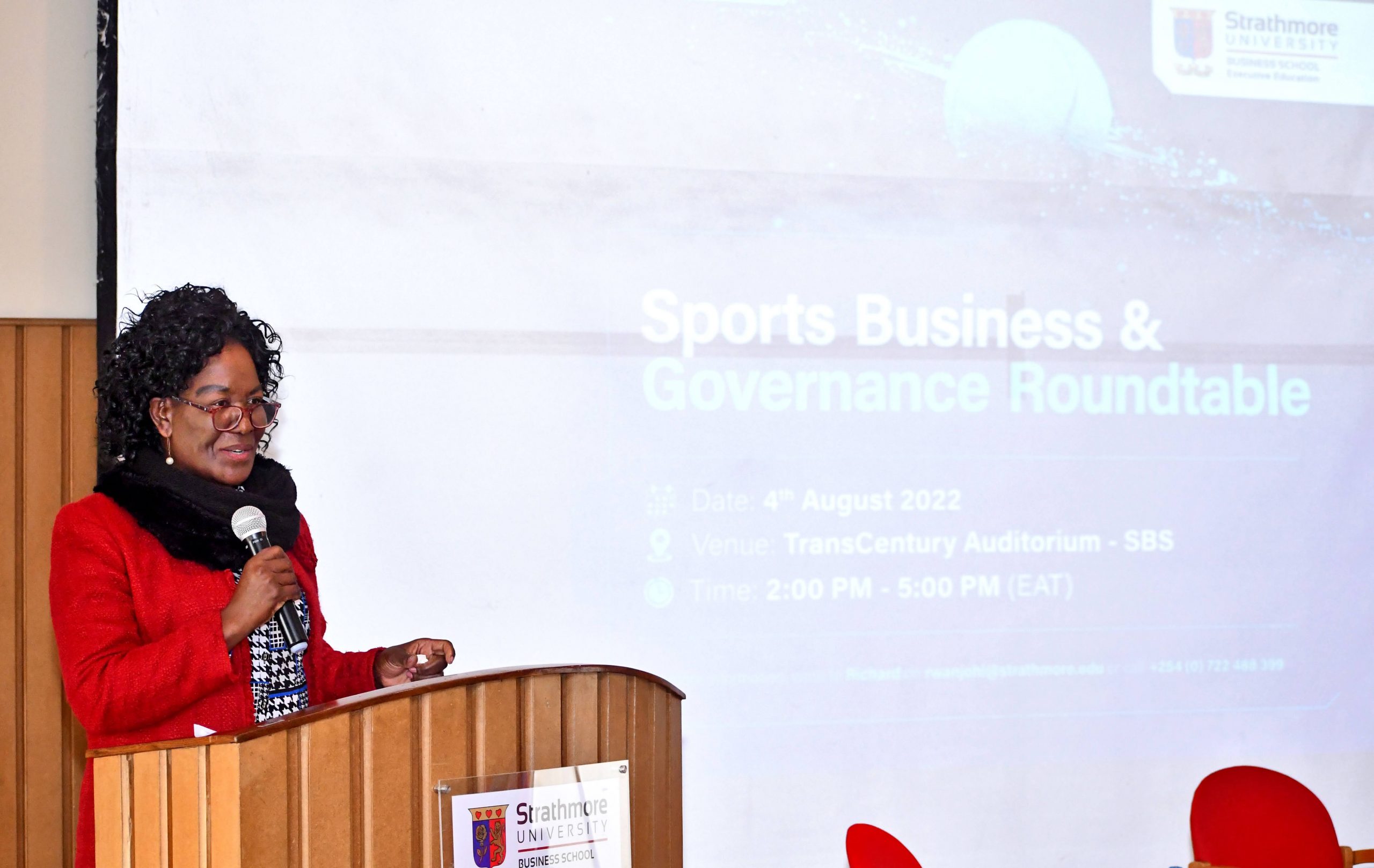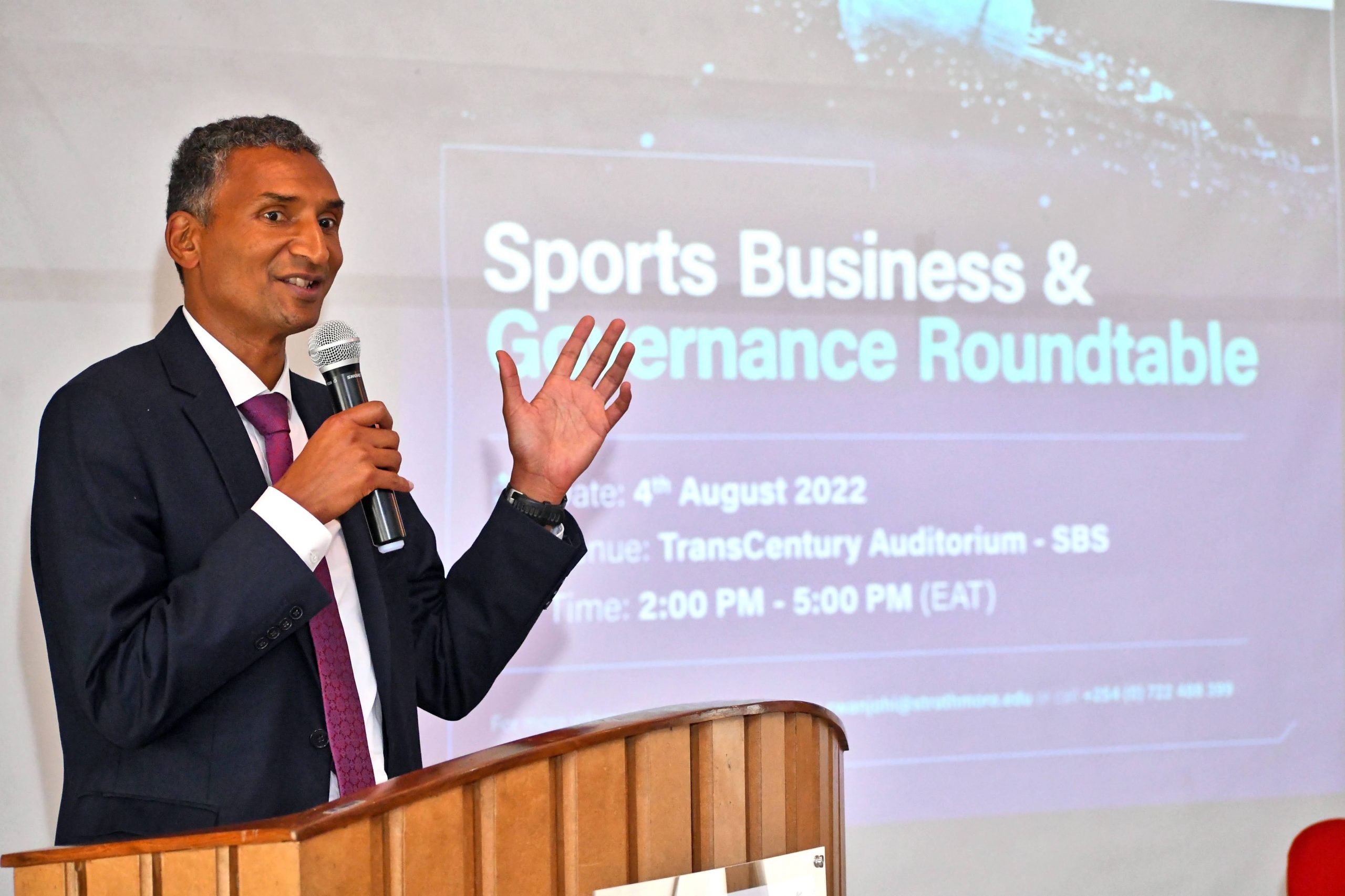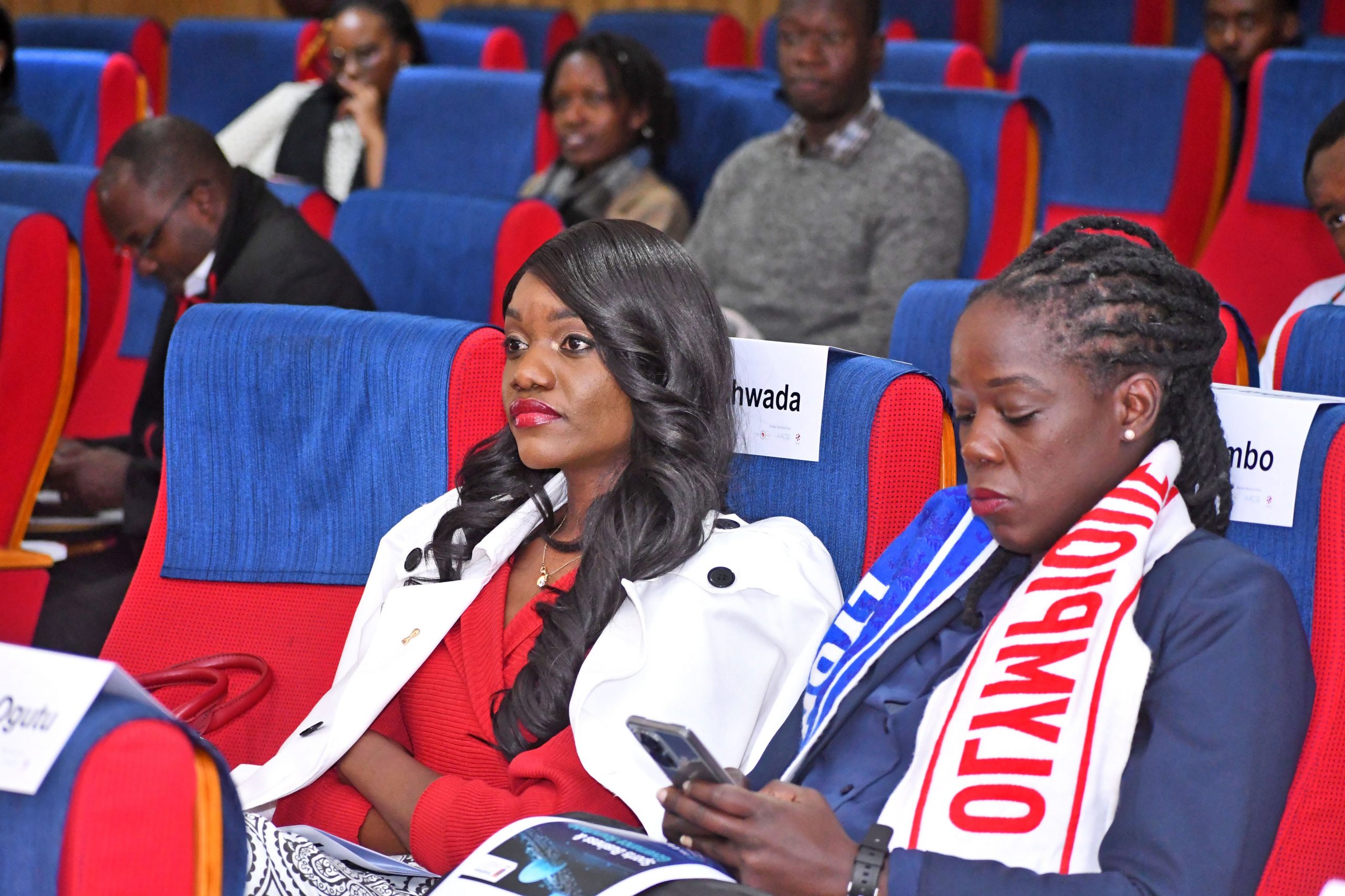Sport emerges as an important component of Socio-economic development of a country. Sports development is touted as one of the antidotes to the underdevelopment challenges of developing countries, Kenya included. Despite the major challenges, there is potential that exists in sports development that can also help in harnessing its benefits for economic growth and development. This requires stakeholder partnership that can bring together public, private, academia, entrepreneurs, sports women and men, NGOs, Philanthropies etc. in coming together to position sports in the 21st century.
On 4th August 2022, the Strathmore University Business School (SBS) hosted the inaugural Sports Business and Governance Roundtable. The event aimed to investigate the sports ecosystem and address the challenges hindering development of sports to realize its potential. It was also a curtain-raiser to the Football Business Summit scheduled to be held in Kigali, Rwanda on 14th -15th September 2022.
Sports bodies, federations and clubs, including the Football Foundation of Africa, clubs such as AFC Leopards, Gor Mahia, Ulinzi FC and Wazito FC, Communications and PR agencies, Pacific Sports, IMG Kenya as well as experienced sports legal experts and consultants were present. First-time world champion marathoner, Douglas Wakiihuri, also graced the occasion.
Welcoming the guests, Rosemary Okello-Orlale, Director of the Africa Media Hub at SBS, noted the aim of the roundtable was to bring together sports stakeholders and investors in a bid to support the emergence of a strong local sports industry in Africa. This will cause a ripple effect for local talent whereby there will be more local opportunities and increased optimism for local and African talent. They will no longer need to seek earnings abroad with added value within African markets. The sessions sought to discuss sustainable business practices for sports organizations, governance, and resource mobilization within the sports world.
Dr. Vincent Ogutu, Strathmore University Vice Chancellor Designate, expressed his delight in hosting the roundtable. In his remarks, he gave the anecdotes of how Strathmore University embodies the development of healthy and sporting heritage. Noting the emphasis the founders of the institution put into different sports, from athletics, rugby to mountaineering, he gave his support to the event. He also challenged sports stakeholders to provide better platforms and opportunities for sports people to thrive.
Dr. Ogutu further noted that the University is passionate about developing transformational leaders, who work with teams beyond their self-interests to create a vision which enhances sports governance. Ethical governance is paramount and should be driven by the values such as honesty, integrity, public welfare, fairness, and selflessness.
Brian Wesaala from Football Foundation of Africa – co-partner in the inaugural roundtable gave a case for the game of football. Starting with a case of the transformation of English football which turned around after the Hillsborough disaster in 1989. He noted that Kenyan and African football lags due to the low quality of competitions, muscle drain and export of footballers into Europe and other parts of the world, and poor governance.
Wesaala sold the case for the African Football Business Summit to bring about the transformation of the game on the continent. He seeks to bring together the users or consumers of football (individual athletes/players, clubs and teams and academies) with partners and producers (start-ups and SMEs, service providers, public service organizations and academic institutions). This informed the partnership with the Strathmore University Business School to provide the academic grounding – research, management and leadership training skills to the forum and future programmes for sports organizations. He expressed his gratitude to the Strathmore University through the Vice-Chancellor’s office for the roundtable and support to the inaugural African Football Business Summit.
In the panel session, Sports Business and Governance in Africa, Cynthia Mumbo, Founder and CEO, Sports Connect Africa gave the challenges that sports bodies in Kenya have as a lack of capacity and capability. This has affected management of sports and attendant finances and resources. She called for a redefinition of the sports value chain in Kenya in order to address the gaps and overcome the challenges currently facing these bodies. She shared her experience with the Kenya Basketball Federation where she contested the President’s post in 2021, losing narrowly to the incumbent. She expressed optimism about the role of women in sports and their active and additional involvement in sports beyond just participation.
Peter Gacheru – a communications and public relations consultant with IMG Kenya took a historical perspective to understand the sports ecosystem. “Who is the federation?” “Who are they? Who do they work for?”
He gave an interesting perspective of a typical athlete or sports person who after their active days becomes either a referee, coach or gets into sports administration. This has seen many unqualified or under-performing individuals manage sports organizations and federations. He also noted that this is the colonial heritage which Kenya inherited, where sports was more of a welfare and entertainment than a full-time career. This has not been addressed in modern day sports management. There are currently over 55 sports associations and federations in Kenya. The current sports administration requires individuals who are well versed in business management, public relations, and administration of resources.
Both Mumbo and Gacheru noted the need to entrench the management of sports in all sports federations. The current Sports Act needs to be reviewed and amended to reflect the developments in sports that have taken place in alignment with the international bodies managing different sports disciplines. Ethics, governance and commercialization of sports are some of the key highlights that need to be considered.
Moving into matters governance was a panel session of Governing Sports in the Modern Era. Sarah Ochwada – sports lawyer working with the Centre of Sports Law kicked off by noting that focus needs to be on the athlete or sports person. Sports federations have lost this focus making it difficult to manage both individual and team sports in the country. She also concurred with earlier speakers on the need to review and amend the current Sports Act.
Prof. Moni Wekesa – sports academician, researcher and administrator, noted that the genesis of sports was a private good. Individuals started sports to find better activities to develop a healthy lifestyle and compete among themselves. Eventually, sports clubs were developed and that’s how Governments became involved. This is from registration, taxation and providing an enabling environment for sports to develop and thrive. Prof. Wekesa said the ideal situation would be for less government interference and more involvement from the private sector would sports thrive in the country.
Ms Ochwada gave different illustrations noting that government intervention is necessary when sports bodies do not work within the confines of the law. However, the current situation has seen government interference affecting the many stakeholders in popular sports such as football and cricket.
Nancy Ouko – a practicing sports lawyer working with the clubs and Kenya Basketball Federation, noted that the current Sports Act has been a challenge for organizations working in sports. She gave a case of sports clubs which have not complied with the registration requirements putting the Federation to task on matters of governance.
The consensus was on developing better sports laws and regulations within the Sports Act. Lobbying and caucusing around sports will become integral as the country undergoes a political transition. The sports sector can learn from other sectors such as IT, banking and health, which have managed to make major leaps in use of technology and leveraging the local capacities and capabilities.
The roundtable ended with a promise of entrenching the discussions into stakeholder engagement across the sports sector. This will involve development of training programmes for sports individuals and clubs, research into best practices of management and leadership and innovation in sports.
Building local capacities in sports management and business will ensure sustainable developments through sports. New sports investment opportunities and development of proper sports infrastructure will be part of the next phase.
Article by Richard Wanjohi
Would you like to share an article? Write to us at sbscommunication@strathmore.edu
Share This Story, Choose Your Platform!
Your journey to business excellence starts here. Subscribe today and be at the forefront of innovation and leadership.












